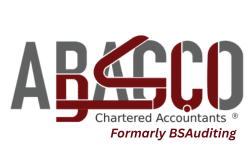Enterprise Resource Planning software, commonly called the ERP, is developed and used by businesses and organizations to integrate their internal operations to achieve the maximum capacity and ensure that each business unit performs as per the required standards. The ERP integrated integral business functions like planning, sales, procurement, marketing, finance, production, and more. By the passage of time, ERP has evolved from being a company’s internal tool to a web-based software via which external stakeholders can access it and use it to place their orders. Every department in an organization has its own needs and optimization standards that can be in sync with the other departments; ERP enables the organization to optimize and at the same time sync all the departments in a way that yields the desired organizational goals. This is why ERP software in Dubai is not only standard but also a preference.
ERP gathers information from one department and transmits it to the next. That information is used to plan and modify the department’s strategy that receives that information effectively and efficiently. This chain of information sharing and strategy adjustments increases the overall efficiency and productivity of the organization.
A comprehensive and able ERP software has its benefits like, Monetary benefits, improved levels of collaboration, efficient analysis, enhanced productivity, high customer satisfaction, enhanced risk management capability, optimum inventory levels, etc.
1. Monetary Benefits
Every business has the main target to gain and maximize its profits; However, an able and comprehensive ERP solution might come with a whopping price tag; the benefits it yields tend to justify its price in the long term by providing more control over the business operations and overall process optimization. The data collection and centralization capability of the ERP makes it possible to unify the information that is fragmented by compiling it in a single software that is accessible to the users to extract the information they require as per their requirements. This information unification saves precious time spent on information collection and data analysis shrinking the job completion time to a great extent. This overall enhanced productivity of the system results in monetary benefits in the long run for the business.
2. Improved levels of collaboration
As discussed, ERP unifies scattered information under a single platform, making information available to the stakeholder within an organization. This high level of information sharing reduces the risk of transmitting false information. The ease of excess smoothens the operations since all the players have readily available information, enabling them to plan and avoid project delays. ERP also helps prevent duplication of data and enhances the overall collaboration levels within the organization.
3. Efficient Analysis
ERP’s data consolidation powers make it easy for the users to extract and enable them to analyze that data more accurately effectively. The dashboard feature in the ERP aids the user to have a constant look at their respective department KPI’s and their standing concerning them. This timely and accurately updated access to information enables the users to analyze their performance in real-time to adjust their operations to enhance their performance and departmental performance. This chain of performance optimization generates positive results for the organization overall.
4. Enhanced productivity
Working in a traditional environment makes the simplest tasks difficult to perform efficiently and timely. Production efficiency tracking and timesheet management consume most of the time refrains the managers to concentrate on other essential duties and processes, but what if they have access to all the production and timesheet data in real-time just a click away? ERP data consolidation and personalized report generation capability grants managers and supervisors access to the information they require just with a click on their screens by highlighting the problem areas and adjusting their strategy in real-time.
5. Higher customer satisfaction
The importance of customer satisfaction, no matter the industry, has been significantly amplified in recent times. Hype in the increased customer intelligence levels due to the ease of access to information has compelled businesses across the globe to concentrate on improving their customer satisfaction levels; Most companies consider customer satisfaction as their top priority. Businesses emphasize customer relationship management and work upon companies to be customer-centric. ERP enables the company to integrate the CRM in their ERP’s; this transmits the customer sentiment at all levels and stages of the production. Updated customer feedback and emotions enable businesses to tweak their offerings much closer to what their customers want from their products. This adjustment to customers’ demands results in the customer base expansion, which yields better profits for the organization.
6. Enhanced risk management capability
A responsible business needs to fulfill all the legal and social requirements imposed upon it by the respective government and society. At times businesses and organizations find it challenging to adhere to the rules and regulations laid down by the community or state sine they are not aware of all of them; such an instance exposes the organization or business to a societal lash back and legal consequences that are not favorable. Most ERP solutions are embedded with the legal and socio-economic regulations of the region the business or organization operates in. This feature of the ERP software system helps companies forecast demands and adjust their strategies in their best interest.
7. Optimum inventory levels
Inventory is a point of concern for every business and organization in the economic environment; there is a constant struggle to achieve optimum inventory levels. Inventory should not be inflated that the stocks remain unsold in the store and should not squeeze that there is nothing to offer when there is a demand. ERP systems have the feature to raise flags and intimated users at all levels with the real-time stock level; systems automatically adjust the stocks whenever a sale, dispatch, or a new order is booked in the system. Update stocks enable the businesses to work out their economic order quantities, min-stock level of individual inputs, and enough output stock levels that will not produce a shortage, putting an unwanted burden on the production operations.
Conclusion
ERP system solutions have proved their worth, and dedicated companies developing these ERP solutions provide tailor-made solutions to their clients. ERP’s enable the user organization to standardize their operations which results in improved KPI’s, better performance, and overall business growth.
BS Auditing of Accounts is the first accounting firm to incorporate ERP software into its work-frame. Our team members are thoroughly trained to make the most out of this software and assist our clients using the best ERP software in Dubai. Feel free to contact us:
• Office # 0641, Tamani Arts Offices, Business Bay, P.O. Box 111390, Dubai, UAE
• +971 4 570 7357
• +971 58 108 5690


